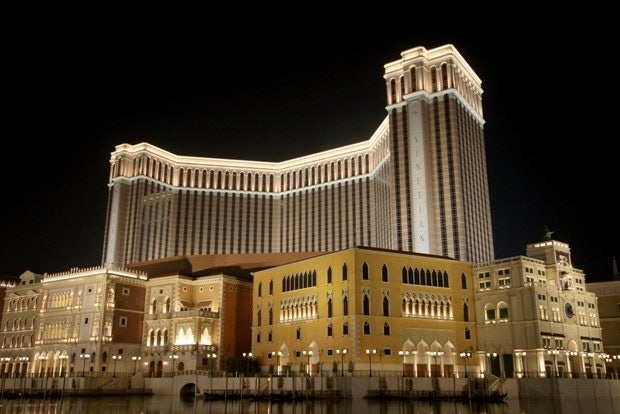
Macau's booming economy has a reputation for benefiting from corruption. (Flickr/vixyao)
Macau may be world-famous for its high roller-filled casinos and opulent hotels, but these features go hand-in-hand with much seedier aspects of its reputation—including money laundering and corruption. According to a new report on corruption and business in Asia, Macau businesses are becoming less bothered by corruption every year—but this might not be because it’s going away any time soon.
That was the assessment of Hong Kong-based consultancy Political and Economic Risk Consultancy (PERC) in its recently released 2014 report on corruption’s impact on the overall business environment in Asia. The report, which measures factors such as a company’s ease in dealing with corruption and whether corruption practices makes conducting business difficult, surveyed 1,833 expatriate executives from across Asia, including over 100 in Macau.
In response to the question, “To what extent does corruption detract from the overall business environment?” Macau’s score has been improving since 2006. This year, Macau achieved a score of 3.65 out of 10 (with 0 being the best, 10 being the worst), an improvement from last year’s score of 4.23. Despite respondents’ comparative happiness with the corruption situation, PERC says that the numbers might not mean that corruption has decreased—rather, it might be contributing to Macau’s booming business.
The report says that it is unsure if Macau’s relatively low score, at 3.65, is due to a greater crackdown on corruption or the fact that mainland China’s corruption underpins the Macau economy. “Were it not for corruption elsewhere, Macau would not have been transformed in the space of 15 years from a sleepy colony of Portugal with the 48th largest per capita GDP in the world to an SAR of China with the fifth highest per capita GDP of any economy in the world (according to latest World Bank estimates),” says the report.
This wouldn’t be surprising, since Macau’s status as the region’s gambling center has a reputation for making it a hotbed for money laundering. Chinese nationals can only bring 20,000 yuan ($3,200) out of mainland China at any time, and up to $50,000 a year. To circumvent that, many of China’s rich can deposit their money with junket operators, who are ostensibly gaming promoters but often conduct money-laundering operations. Junket operators can ferry the money across borders for the rich to use in the casinos, which can be won back in U.S. or Hong Kong currency.
“It’s true it’s not easy to detect irregular practices in the gaming industry,” Lou Shenghua, Macau Polytechnic Institute’s public administration program coordinator, told Macau Business Daily, commenting on the PERC report. “The gaming industry here has always been a nest of criminal activities like money laundering and corruption.”
However, as the Chinese government tightens its crackdown on Macau’s VIP rooms, the gaming and tourism industry are hoping to strike gold by catering to China’s middle-class tourists through more family-friendly attractions and non-VIP gaming facilities.
While PERC’s report is unsure if Macau’s booming business might be attributed to having benefited from corruption, it recognizes that Macau has definitely made progress on combating it. The high-profile arrest of former public works chief Ao Man-long in 2005 helped boost Macau’s standing with corruption.
However, as the PERC report notes, if Macau wants to really make an impact in eradicating corruption, it will have to rely more on its own legislation than any help from mainland China. Beijing is currently more interested in monitoring the behavior of officials and their use of public funds rather than the outflow that’s systemic to money laundering. If it wants to get serious on combating its “seedy” reputation, Macau will simply have to pay closer attention to both inbound and outbound abnormal capital flows.